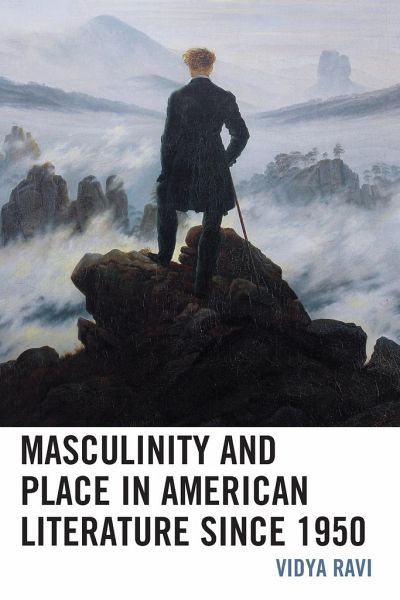
Masculinity and Place in American Literature since 1950
Versandkostenfrei!
Versandfertig in 1-2 Wochen
44,99 €
inkl. MwSt.
Weitere Ausgaben:

PAYBACK Punkte
22 °P sammeln!
American literature has long celebrated the figure of the self-made man and the idea of establishing selfhood, particularly male selfhood, in nature. However, during the crisis of masculinity that swept across America in the middle of the twentieth century, a generation of writers started exploring a different kind of a man. This was a figure who was concerned not so much with the loss of the West or the desire to recover a wilderness, but with how to live in an ordinary, domesticated continent. Masculinity and Place in American Literature since 1950 explores the role of place in negotiating, ...
American literature has long celebrated the figure of the self-made man and the idea of establishing selfhood, particularly male selfhood, in nature. However, during the crisis of masculinity that swept across America in the middle of the twentieth century, a generation of writers started exploring a different kind of a man. This was a figure who was concerned not so much with the loss of the West or the desire to recover a wilderness, but with how to live in an ordinary, domesticated continent. Masculinity and Place in American Literature since 1950 explores the role of place in negotiating, reinforcing, and subverting articulations of hegemonic masculinity in the work of four American writers from the latter part of the 20th century-John Cheever, John Updike, Raymond Carver, and Richard Ford. The book argues that American fiction by white male writers between the 1950s and the present day is compelled by the troubled and troubling relationship between masculinity and place. This relationship is deeply embedded in how ideals of masculinity are predicated upon the experience of the physical world, and how the symbolic logic of masculinity is continually subverted by alternative conceptions of dwelling and ecological consciousness.













